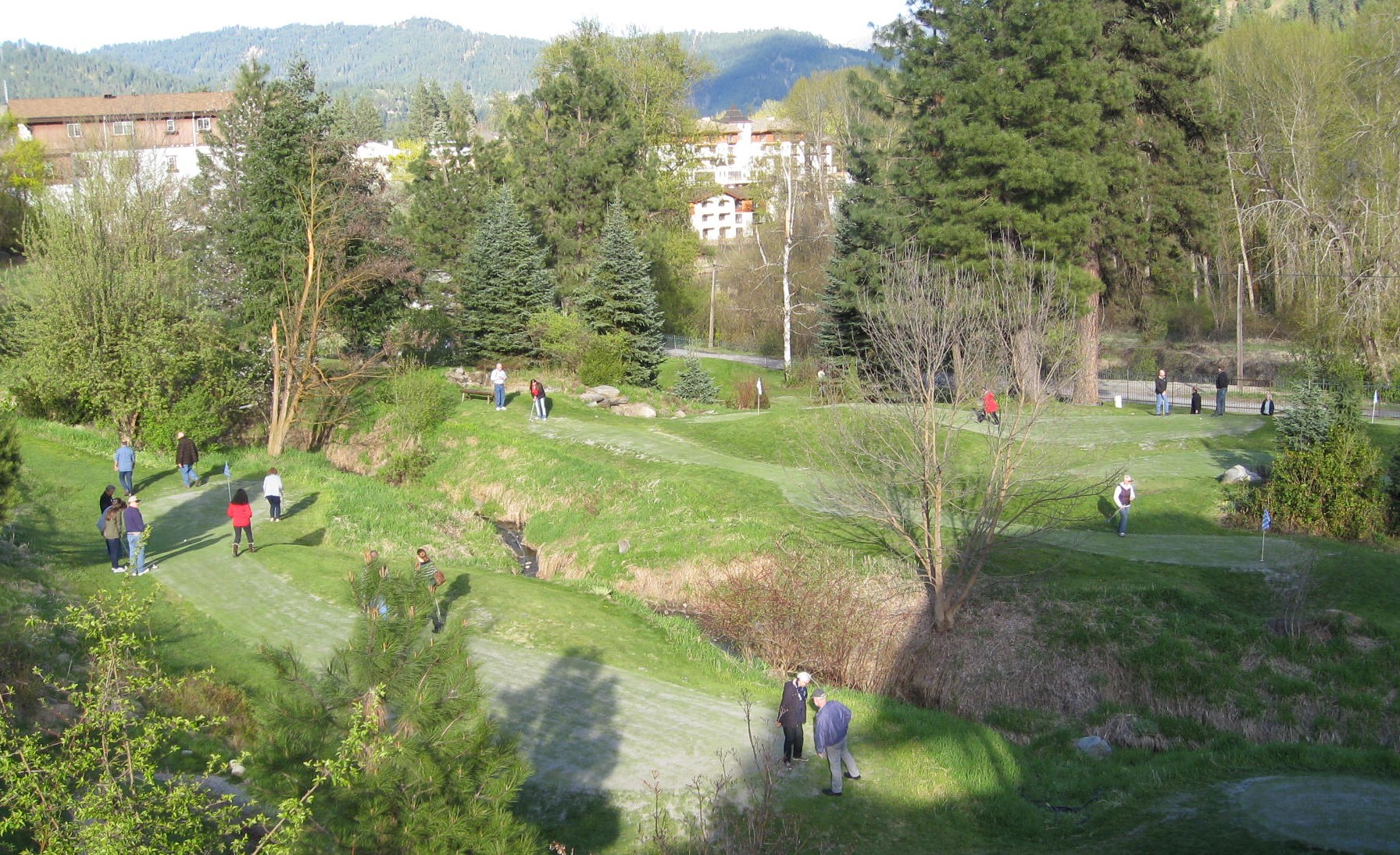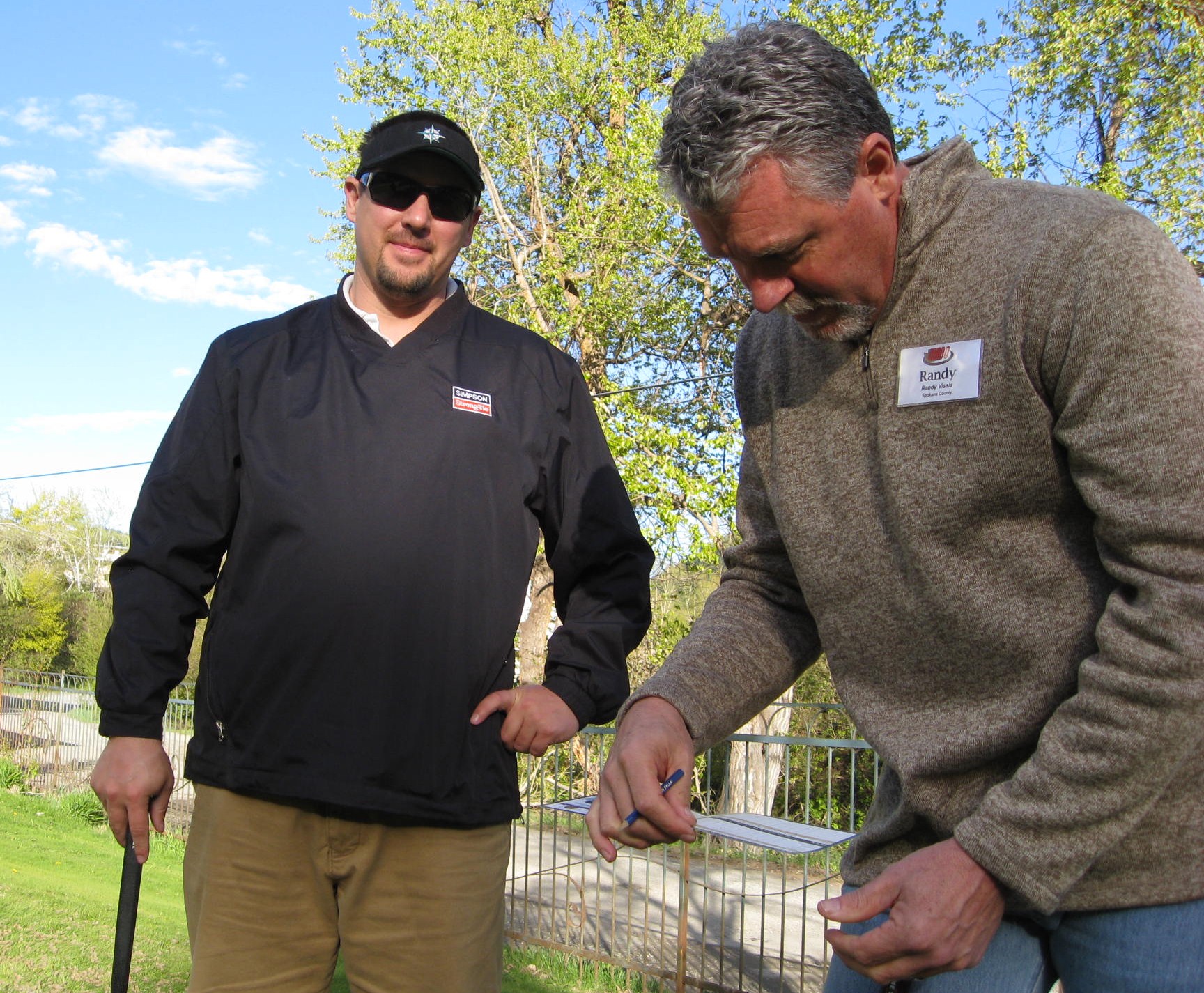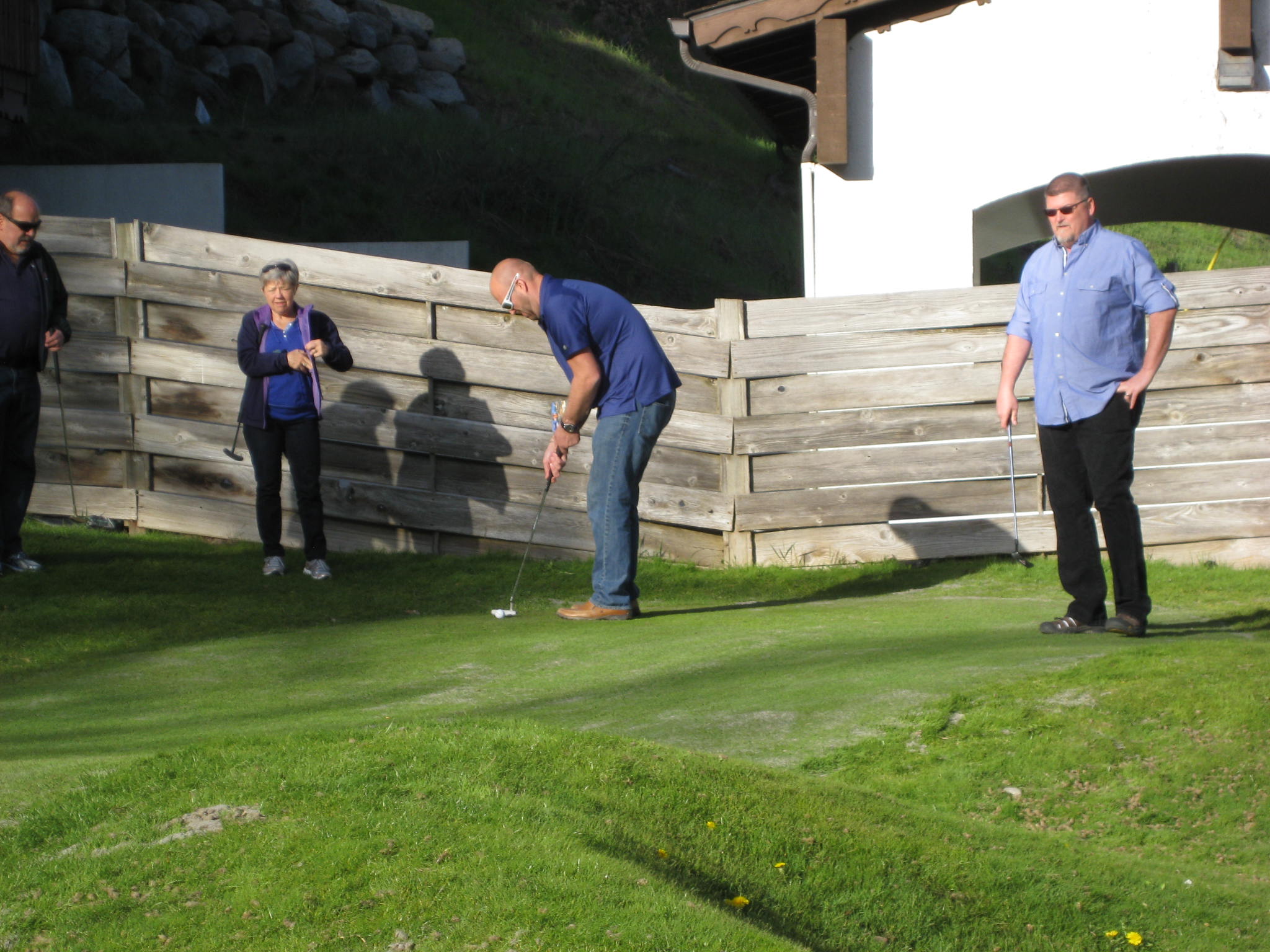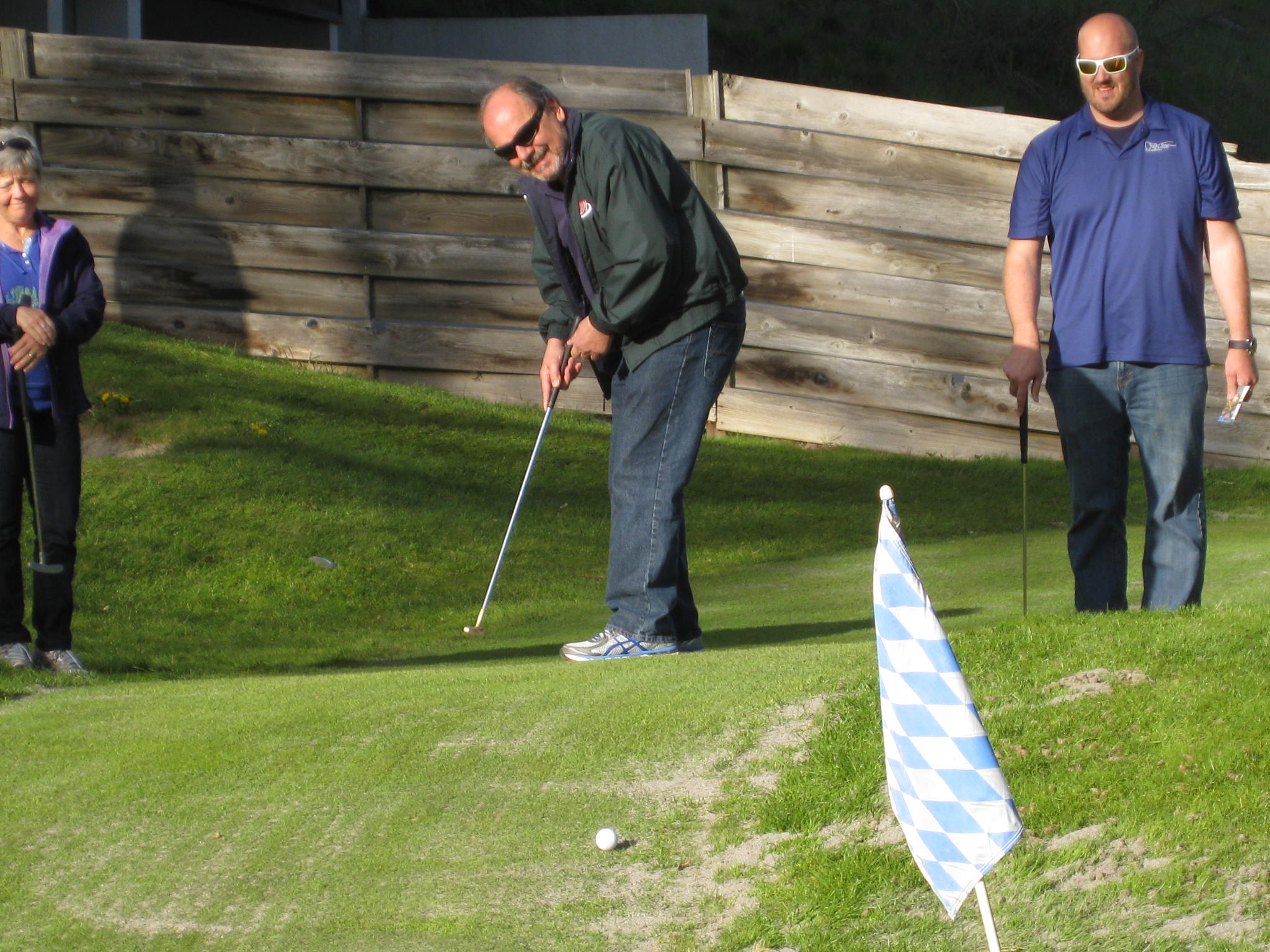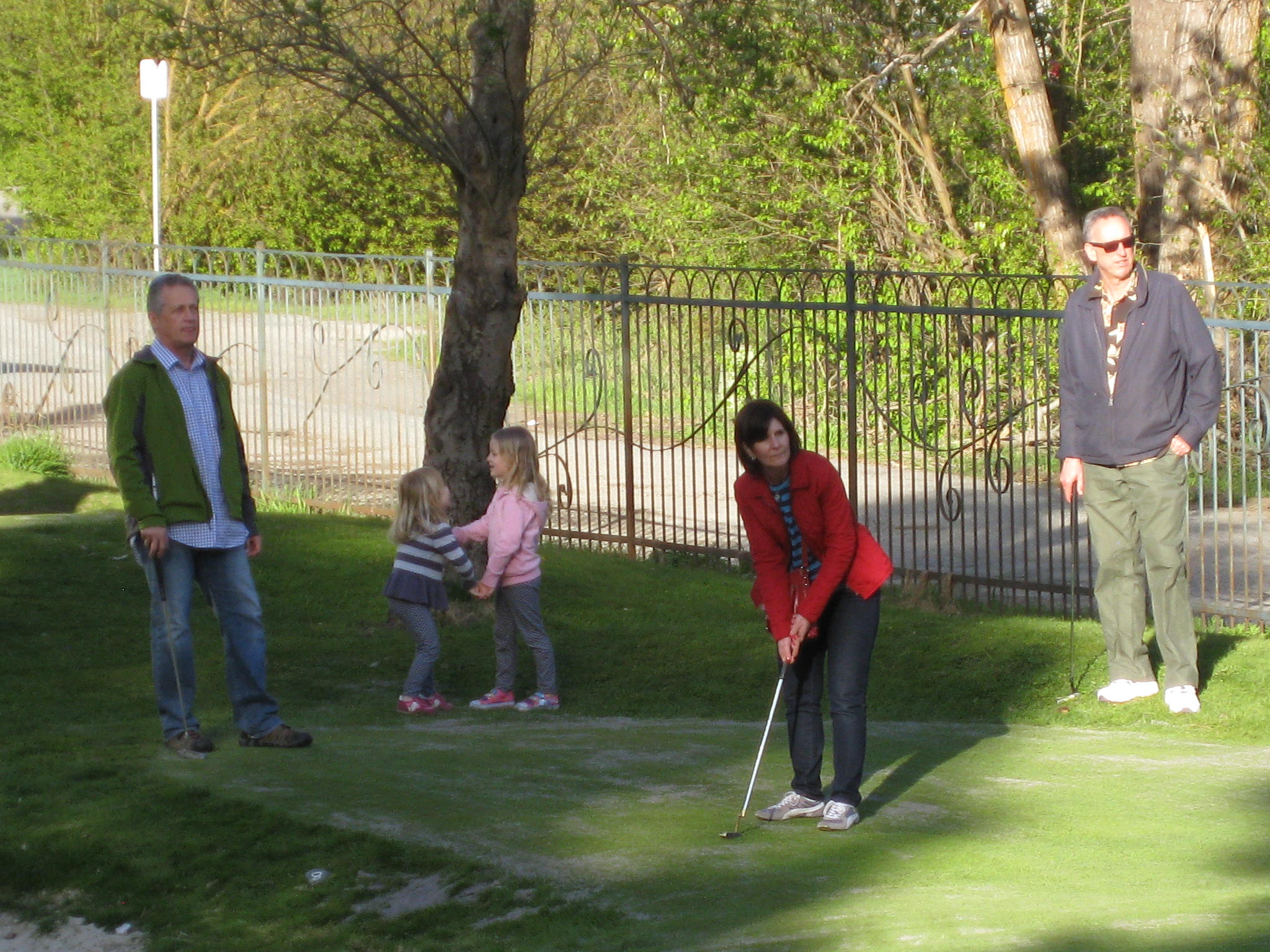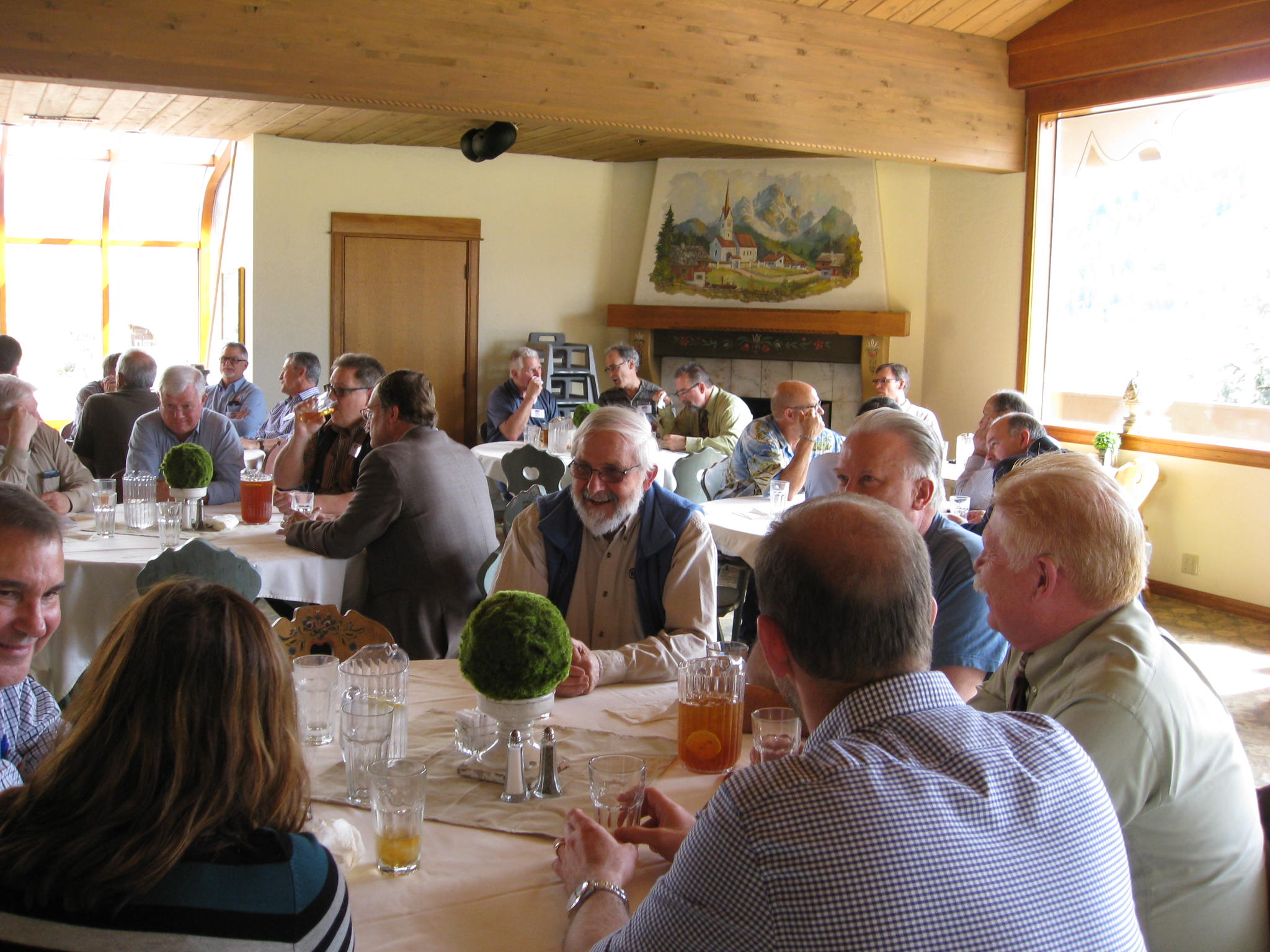|
WABO 2015 Spring Quarterly Meeting - Leavenworth
President's Report - Jon Siu BE INVOLVED!! This thought keeps coming back to me that we need everyone in our profession to be involved in matters outside the business of our individual jurisdictions. Participation in WABO and its endeavors is one way to do that. I’m grateful to all of you who are actively representing WABO or keeping our initiatives moving along. I encourage those of you who are less active to become more so. Amid the beautiful views and Spring weather, the WABO membership met at the Enzian Inn in Leavenworth for Spring Quarterly Meeting on April 9 and 10. As you can see from my report and the other committee reports, your organization continues to be busy and involved at the state and national levels of codes and politics—which means we are continuing to shape decisions being made that affect our work lives. On the codes front, besides our own Technical Code Development Committee, WABO members are participants in the State Building Code Council, both on the Council itself and on Technical Advisory Groups that are looking at the State adoption of the 2015 I-codes. Other members are involved in code committees with ICC Region II (Washington, Oregon, Idaho, Wyoming, Montana, and Alaska) and on ICC code and standard development committees that are already working on the 2018 codes. On the political front, we are involved in the Western Pacific League of Building Officials (Washington, Oregon, California, and Southern Nevada chapters of ICC), whose goal this year is to get more Western United States representation on the ICC Board of Directors and Officers. We are also represented on the board of the International Association of Building Officials, and one of our members is an officer in Region II. Last but certainly not least, we have the Governmental Relations Committee dealing with State legislation. All this goes to show our fingers are in many pies, and WABO is making a difference in all these places. While we’re on the topic of national-level involvement, as a member chapter of ICC, WABO has a stake in decisions being made by the ICC Board of Directors. As you know, a recurring theme for the last few years has been whether or not Washington State should adopt codes on a cycle that is different from ICC’s code development cycle. As we reported previously, Gary Schenk participated in a workshop sponsored by the National Institute of Building Sciences (NIBS) regarding adoption cycles. A link to the final report can be found on the WABO website. Following the workshop, last Fall, WABO sent a letter to the ICC president with our thoughts and suggestions regarding code development/code adoption cycles, but stating our commitment to working with them to solve the problems we saw. In March of this year, having heard nothing from ICC, we sent a follow-up letter requesting a response and reiterating our commitment to work with them. Just before the Leavenworth meeting, we finally received a response from Guy Tomberlin (ICC President). The WABO letter and ICC’s response can be found on the WABO web page. While we did not receive a positive response, President Tomberlin did say the ICC Board of Directors is looking at the recommendations coming out of the NIBS report. Since some of the recommendations clearly fit in with WABO’s views, it is my hope that ICC will work with us to actually implement some of those ideas. Returning to the events in Leavenworth, there is so much to include in my already-lengthy report but here are a few of the highlights:
One of the most important segments of the Leavenworth meeting was the membership discussion on whether Washington State should require sprinklers in townhouses being built under the IRC. The Washington State Association of Fire Marshals (WSAFM) submitted a proposal to the SBCC that would create such a requirement in the 2015 state building code, and asked whether WABO would support such an amendment. Knowing the memberships’ strong feelings about sprinklers in the IRC, the Executive Board thought it was important to take a formal vote of the membership on the issue, as we did several years ago when the requirement for sprinklers first appeared in the IRC. In order to present us with the best technical information, WSAFM requested and received permission from the E-Board to have Mr. Jeff Shapiro present their rationale for the proposal at the meeting. Mr. Shapiro usually represents the sprinkler industry at the ICC code hearings. We also gave Diane Glenn, as a representative of the Building Industry Association of Washington (BIAW), an opportunity to present their opposition. A lively and somewhat lengthy discussion followed, which I will not detail here. Bottom line, the membership in attendance voted approximately 3 to 1 (by my estimation—votes were not actually counted) to not support the proposal. However, as was clarified at the meeting, this vote was not to have WABO actively oppose the proposal, and there was no subsequent motion to do so. While we did not agree with WSAFM on this issue, both WSAFM and WABO are continuing to look for opportunities to find common ground where we can work together. At our next meeting, we will be holding elections for all Executive Board positions (officers and committee chairs). Two members, Gary Allsup and Mike Noot, have announced they will not be running for re-election, as Mike will definitely be retiring shortly thereafter, and Gary is considering it. As a result, we will have at least two openings on the Executive Board, one in Governmental Relations and the other in Education. This means you have a clear opportunity to BE INVOLVED and serve your fellow WABO members! If you’re even just barely starting to think about running for either of these positions, or for that matter, any of the positions on the Executive Board, I encourage you to talk to Trace Justice and throw your hat in the ring. There are other upcoming opportunities to BE INVOLVED as a WABO member:
To Mike and Gary, I want to take this opportunity to thank you for your selfless service to WABO. Thank you for your leadership of your committees, and for your commitment to the betterment of WABO! We wish you well, wherever your path takes you from here. Our next get together will be at the WABO Annual Business Meeting, June 25-26 at the Heathman Lodge in Vancouver, Washington. BE INVOLVED in this, your organization! I hope to see you there!
Committee ReportsGovernment Relations Committee - Chair Gary Allsup The end of the 2015 legislative session is rapidly approaching with the state budget funding being heavily debated. Senate Republican leaders are proposing a “no new tax budget” based upon increased existing tax revenue forecasts from Washington State’s modest recovery. House Democrats on the other side of the isle are proposing tax increases. WABO’s prime legislation, HB 1387 apprenticeship funding sponsored by Representative Dean Takko, advanced but died in Appropriations. Other legislation concerning building codes such as SB 5185, the 6-year code cycle bill and HB 1234, increased funding for the SBCC, both died in House Rules. SB 5804, the SBCC process bill, did pass out of the Senate 48-1 but failed to emerge from the House Technology and Economic Committee. Most likely these bill and others will return next year. One interesting bill to watch was SB 5139, also known as the 4-stories IPC bill. This legislation removing flexibility used by jurisdictions was thought to be dead. Resuscitated by Senator Roach, this advanced after a 49-0 vote and was referred to the House Local Government Committee. I had been assured the bill was dead in the committee by two legislators. After great political pressure was applied to move the bill, an affirmative reconsideration vote advanced the bill. During House floor debate, Representative Vincent Buys was at his best in the debate and offered amendments but to no avail. In the end, the bill passed without amendment and is on the way to the Governor’s desk. The use of the International Plumbing Code was exposed to the entire legislature, a good result. Count on this issue to be in the running next year. In January, membership welcomed the new Chief Electrical Inspector, Steve Thornton, to the Government Relations Committee. The All-Cities Electrical group, John Brickey, Tom Phillips and others have been in conversations to give the cities group a larger say in electrical code adoption. The group is tasked with identifying RCW’s to amend and to have language ready to next year’s legislative session. Chief Thornton is very open and receptive so expect good things from these discussions. Our lobbyist, Amy Brackenbury, sent me an email from Olympia while in Leavenworth stating, “there will be a proviso in the capital budget to fund an interim/stakeholder work group at the SBCC to focus on a variety of issues, including code adoption, funding and staff. Department of Enterprise Services is hopeful WABO can be a part of the workgroup.” I will speculate that the legislature is seeing the same issues arise every year in legislation directed at the SBCC. Kudos to the legislator or group that offered this idea for a review and update of the SBCC. Make your voice known to Julie or a board member if you have a desire to be WABO’s voice in this workgroup. Lastly, it has been my pleasure to serve as your GR chair. I announced to the board earlier that I would not seek reelection at our annual business meeting. It has been a pleasure to represent our organization’s wishes to advance our professional standing in an ever changing industry. Tim, Julie and Amy are dedicated professionals supporting us tirelessly. Should you have an interest in serving, contact Julie or Trace Justice.
Education Committee - Chair Mike Noot Since we will be in a code adoption year in 2016, we will return to a five-day Education Institute and repeat the IBC and IRC update classes. We are also looking to increase the number of classes offered to 5 each day as well and incorporate a sequence for fire code officials. The Inland Chapter has disbanded and left a void in training offerings usually filled by the “Short Course” held in Spokane. Some of the need is expected to be filled by the North Central Chapter. We will attempt to coordinate with them to see that adequate training is being provided in the eastern part of the state. We are also investigating the possibility of providing traveling Code updates in the coming year as well. The committee identified the need for training on the Electrical code, Solar Photovoltaic installations and a class that is specific to the Washington State amendments only. Please send other suggestions to the committee through Julie Rogers at the WABO office at [email protected].
Technical Code Development Committee- Chair Lee Kranz The WABO Technical Code Development Committee has been actively working on our Group A code development proposals as well as the State of Washington code amendments to the 2018 I-Codes. We have been meeting on a regular basis to develop new code change proposals and evaluate those posted on the ICC website in anticipation of attendance at the ICC Committee Action Hearings in Memphis, TN. There was one scholarship application submitted and it was approved for Bob Snyder to attend the ICC CAH in Memphis. This will be the first code development cycle in which WABO members will be able to vote on Group A code changes. After the Public Comment period of the Group A code development cycle, TCD anticipates completing a WABO Membership Voting Recommendations booklet to provide members with information about various code changes that may be of interest to them. The voting recommendations are based on the opinions of the TCD Committee but members may vote as they chose. WABO Technical Advisory Group (TAG) representatives have been participating in the Washington State Building Code Council TAG meetings to evaluate State amendments as they relate to the 2015 I-Codes and to discuss our positions on various code change proposals. Mark Muld took over for Mike Barth as the primary WABO representative on the Mechanical Code TAG. Mike Barth took over as the primary WABO representative on the Building Code TAG for Jim Tinner, who was recently appointed to the Washington State Building Code Council. Outreach Committee - Chair Tim Nordtvedt The Outreach Education Committee discussed coordination of WABO by joining other organizations to pursue common interests. LG Nelson presented a report on his involvement in BIAW and efforts in standardizing and distributing construction tip sheets for use throughout the state. Coordination with the Northwest Energy Efficiency Council with Lisa Roseneau was also discussed. Those efforts will be ongoing. Also discussed was the use of technology in the promotion of careers in building related code administration. Marty Gillis presented a proposal using LINKED IN which will be explored by WABO by adding another avenue of communication to those who may be researching career paths related to construction. Since LINKED IN is the current job source of choice for this generation, the committee concluded that WABO should have a LINKED IN page to promote the career path and job opportunities. The maintenance and updating of the site will be explored by WABO and presented at the next quarterly meeting.
Honored Retiree, Bob Eugene, and others enjoying lunch at the Enzian Inn Emergency Management Committee - Chair Doug Powell
At the April 9 - 10 WABO Quarterly Business meeting the Emergency Management (EM) Committee discussed the following items:
Other EM Committee business
Under other business it was brought to the group’s attention that the Washington Safety Assessment Facility Evaluation (WASAFE) Committee had its kick-off meeting on March 5, 2015. The WASAFE Committee is made up of at least two members of each participating NGO and was created to work on coordination of credentialing, registering, and deployment of NGO emergency response volunteers and is currently working on:
Washington State Mutual Aid System (WAMAS) EMC Sub-Committee Update: The group was informed that the State of Washington Intrastate Mutual Aid System Operations and Deployment Guide 2015 has gained consensus of the WAMAS committee group to move forward. The next action will be to present this document to the Washington State EMC for approval and signature on May 5th, 2015, the EM Chair will keep the membership in the loop of when this guide will go into effect.
Certification & Registration Committee - Chair Pete Rambow The meeting started at 8:45 am with 10 people attending. The first topic we discussed was the firestop certification process. LG Nelson and Kelly Mayo will be working with the SIRP sub-committee to begin work on the program. Thanks to Jack Fingold and Tom Smith, subject matter experts, for helping. A2LA is working to include both 17020 (inspections) and 17025 (testing) for the agencies. Judi Payseno, Otto Rosenau, has been in touch with A2LA. There have been changes to the Welder Scholarship Fund to include:
Thanks to the welding instructors for the help in updating the program. So far this year there have been more applicants this year than the last two years. Also, there has been an increase of approximately 2% more of registered welders. |

